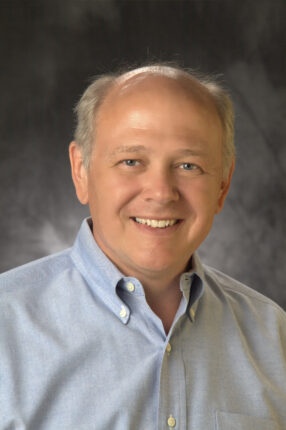 Meet Ted Kyle, RPh, MBA, a passionate healthcare professional who is on the frontlines of trending topics in obesity treatment, policy and education.
Meet Ted Kyle, RPh, MBA, a passionate healthcare professional who is on the frontlines of trending topics in obesity treatment, policy and education.
Not only has Ted focused his career on understanding how to address health issues and needs created by obesity, but he’s also an effective patient advocate who has worked with the OAC for a number of years now. Ted is a former Chair of the Board and has volunteered on several working committees, including the OAC’s Access to Care Committee, Long Range Planning Committee, and others.
But Ted is also an active advocate outside of the OAC, taking his knowledge to the internet and to Capitol Hill to educate others about obesity. His journey is deeply personal, rooted in his own family’s experience with the condition. In 2009, he founded ConscienHealth, a blog that helps experts and organizations work for evidence-based approaches to health and obesity. Through ConscienHealth, Ted works to advance changes in policy and public opinion that will allow new approaches to be developed and put into use. He also works closely with the OAC to support the Treat and Reduce Obesity Act (TROA), meeting regularly with policymakers on Capitol Hill to advocate for improving access to obesity care and treatment options.
In our interview with Ted, he shares why he cares about the OAC’s cause and what motivates him in his decades-long fight to help people with obesity.
Can you share with us your personal journey and how it led you to become involved with the OAC and other advocacy efforts?
Just about everyone in my family, including myself, has in some way been affected by obesity. Without diving into too much boring detail, I can say that I live with several conditions related to my own history of obesity.
But beyond that, I have spent decades listening to the experiences of people whom obesity has profoundly affected at every stage of life. The sum and substance of what I’ve learned tells me that ignorance, bias and stigma of obesity have made the problem overwhelming for many, many people. Even today, when we know that obesity is a complex chronic disease driven by our biology interacting with our environment, attitudes about obesity and the people who live with it do not reflect this basic fact. Rather, they come from an implicit and false assumption that obesity is a “lifestyle” problem.
This does great harm.
As a former Board Chair, a member of the OAC Chairman’s Council, and an advocate, you’ve demonstrated a strong commitment to supporting the OAC’s mission. What motivates you to continue contributing your time and resources?
My fundamental motivation comes from knowing that there is a huge gap between what we know about obesity and what we do about it. Science tells us one thing. Weight bias and stigma tell us something very different. This harms everyone. It is changing, but we still have a great deal of work to do before we can overcome the unnecessary harm of obesity.
Your blog, ConscienHealth, covers a wide range of topics in obesity science, treatment, advocacy and support. What inspired you to start this platform, and what do you hope to achieve through it?
I get up every day and publish new information on ConscienHealth in the hope that it will help to inform a growing audience about the true nature of obesity and the need to address it in more constructive ways. I keep doing it because I hear from all kinds of people — smart health professionals and regular people alike — who find it useful. I also learn a lot from them in the dialogue that results.
In your opinion, what are some of the most significant developments or trends in obesity science and treatment that we should be aware of in 2024?
Obesity is quickly becoming a very manageable chronic disease because of advances in medical science. At the same time, healthcare professionals are responding to this progress by seeking the knowledge and skills necessary to meet the needs of people living with obesity. Though significant gaps remain, we are making tremendous progress.
What do you see as the biggest challenges facing individuals with obesity today, and what steps do you believe need to be taken to address these challenges effectively?
I see two major challenges. The first is to increase our capacity to provide the care for obesity that so many people need. We need more skilled providers, more affordable treatments, and better access to those treatments without outrageous out-of-pocket costs. I’m confident that this will come, but it is not coming fast enough.
The other challenge lies in developing smarter, more effective approaches to preventing obesity. Because of false assumptions about the causes of obesity, strategies for preventing obesity have been almost completely ineffective for decades. Scientists and policy makers need fresh thinking about preventing obesity that will come only from genuine curiosity and objectivity about the problem.
Are you interested in sharing your story with the OAC Community? Let us spotlight you in a future member feature! Email membership@obesityaction.org and ask how to get started.
